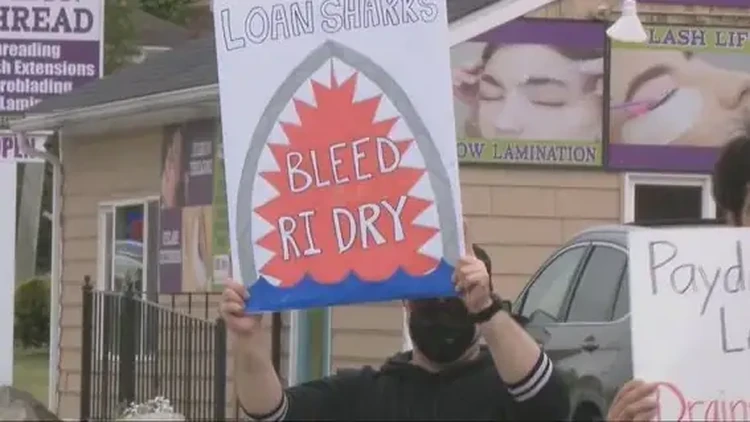Consumers have been paying as much as 261% for loans in the Ocean State
- Rhode Island was the only New England state that still allowed the high-interest loans, which are generally regarded as predatory.
- The action capped 15 years of effort by consumer groups.
- Borrowers commonly get trapped in an endless cycle of debt that far exceeds the original cost of the loan.
After a long struggle almost fifteen years after legislation was first introduced Rhode Island Governor Dan McKee has signed into law a bill that will prohibit payday lenders from charging annual percentage rates (APRs) higher than 36%.
The law will take effect on January 1st, 2027. The typical rate for a payday loan in the state has been 261% APR, according toresearchfrom the Center for Responsible Lending (CRL).
Thanks to the dedication of Rhode Island lawmakers and advocates, the Ocean State will no longer have payday loan sharks. This law will prevent payday lenders from draining millions of dollars in fees annually and instead keep that money in the pockets of Rhode Islanders who really need it,saidCRL Policy Counsel Monica Burks.
While the laws effective start date is way too far from now, these predatory lenders will hopefully see the writing on the wall and stop their usury sooner. We are pleased to see Rhode Island become the 21st state, alongside the District of Columbia, to stop payday loans from trapping people in debt, Burks said.
Gov. McKee, a Democrat, had endorsed the measure. "Payday borrowers are much more than a data point - they are Rhode Islanders who need a few hundred dollars to pay for an unexpected car repair or medical bill. Rhode Island cannot continue to allow these lenders to prey upon our working residents with exorbitant interest rates and fees," he said in a March 2025 letter submitted to a state legislative committee studying the legislation.
Consumers forced the issue after years of inaction, with protests and legislative pressure.

"Rhode Island is the only state in New England that allows this form of predatory lending, charging outrageously high interest rates that suck the life out of our communities, suck the life out of people who are already living in poverty, primarily people of color," said Rabbi Jeffrey Goldwasser with the RI Interfaith Coalition to Reduce Poverty, at a recent protest outside a payday loan office.
Lobbyists not happy
Not everyone is happy with the new law.William Murphy, the former House Speaker who now works as a lobbyist for Purpose Financial Inc., parent company of Advance America, said the measure would bring economic harm to Rhode Island.
Passage of this legislation will cause Advance Americas employees to lose their jobs and health coverage that they and their families depend on, Murphy said in an emailto the Rhode Island Current newspaper.
The state will now have eight additional vacant storefronts. Importantly, thousands of Rhode Islanders will lose much needed immediate access to credit and the ability to make their own personal financial choice. There are no equal alternatives for people in Rhode Island.
In 2022, the most recent data available, Rhode Island borrowers paid an estimated $2.8 million on interest and fees associated with payday loans, based on the $28.2 million of money borrowed across 80,650 loans, according to arecent CRLreport.
Long cycles of debt
Payday loans have been shown to pull people into long cycles of repeat reborrowing that pull them deep into debt. Research from the Consumer Financial Protection Bureau (CFPB) shows that four out of every five payday loans are reborrowed within two weeks.
Polling consistently shows a strong majority of Republican, Democratic, and independent voters support strong interest rate caps, as shownin several state ballot initiatives, including in Nebraska, where in 2020 a cap was enacted with support from over 80% of voters.
The 21 states, alongside D.C., with strong interest rate caps that stop the payday loan debt trap are: Arizona, Arkansas, Colorado, Connecticut, Georgia, Illinois, Maryland, Massachusetts, Minnesota, Montana, Nebraska, New Hampshire, New Jersey, New Mexico, New York, North Carolina, Pennsylvania, Rhode Island, South Dakota, Vermont, and West Virginia.
Posted: 2025-07-14 18:22:16















